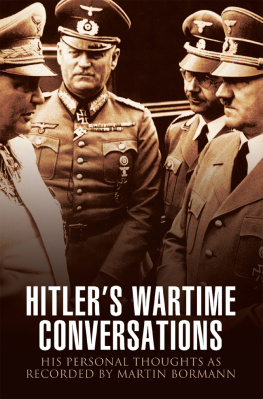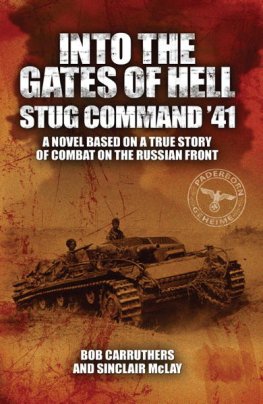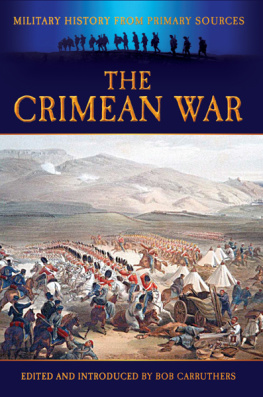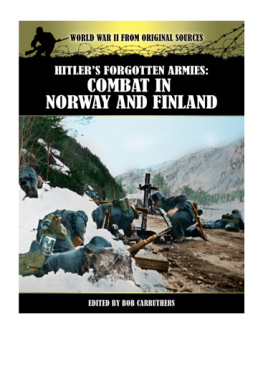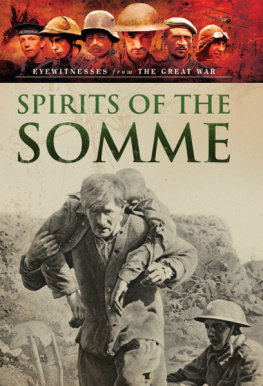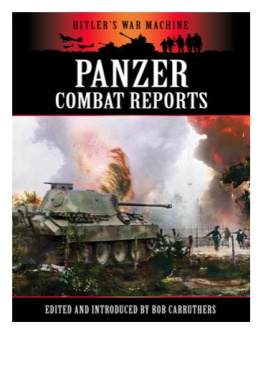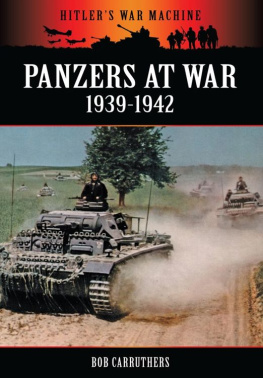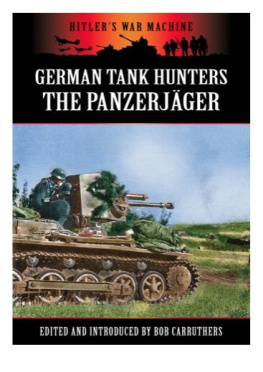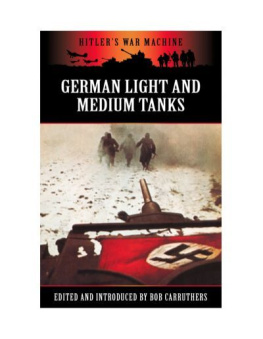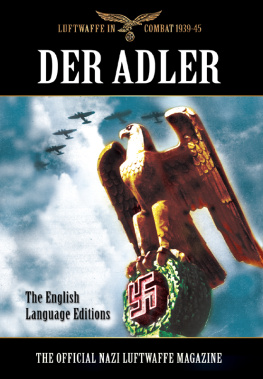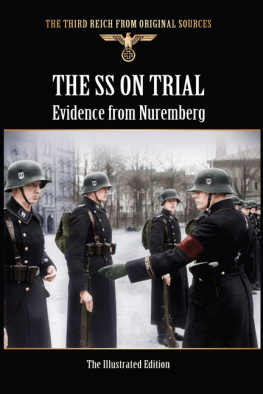Bob Carruthers - Handbook on German Military Forces
Here you can read online Bob Carruthers - Handbook on German Military Forces full text of the book (entire story) in english for free. Download pdf and epub, get meaning, cover and reviews about this ebook. year: 2013, publisher: Pen and Sword Military, genre: History. Description of the work, (preface) as well as reviews are available. Best literature library LitArk.com created for fans of good reading and offers a wide selection of genres:
Romance novel
Science fiction
Adventure
Detective
Science
History
Home and family
Prose
Art
Politics
Computer
Non-fiction
Religion
Business
Children
Humor
Choose a favorite category and find really read worthwhile books. Enjoy immersion in the world of imagination, feel the emotions of the characters or learn something new for yourself, make an fascinating discovery.
- Book:Handbook on German Military Forces
- Author:
- Publisher:Pen and Sword Military
- Genre:
- Year:2013
- Rating:4 / 5
- Favourites:Add to favourites
- Your mark:
- 80
- 1
- 2
- 3
- 4
- 5
Handbook on German Military Forces: summary, description and annotation
We offer to read an annotation, description, summary or preface (depends on what the author of the book "Handbook on German Military Forces" wrote himself). If you haven't found the necessary information about the book — write in the comments, we will try to find it.
Handbook on German Military Forces — read online for free the complete book (whole text) full work
Below is the text of the book, divided by pages. System saving the place of the last page read, allows you to conveniently read the book "Handbook on German Military Forces" online for free, without having to search again every time where you left off. Put a bookmark, and you can go to the page where you finished reading at any time.
Font size:
Interval:
Bookmark:

This edition published in 2013 by
Pen & Sword Military
An imprint of
Pen & Sword Books Ltd
47 Church Street
Barnsley
South Yorkshire
S70 2AS
First published in Great Britain in 2011 by
Coda Books Ltd.
Copyright Coda Books Ltd, 2011
Published under licence by Pen & Sword Books Ltd.
ISBN: 978 1 78159 215 1
EPUB ISBN: 978 1 47384 649 4
PRC ISBN: 978 1 47384 638 8
A CIP catalogue record for this book is
available from the British Library
All rights reserved. No part of this book may be reproduced or transmitted in any form
or by any means, electronic or mechanical including photocopying, recording or by any
information storage and retrieval system, without permission from the Publisher in writing.
Printed and bound in India
By Replika Press Pvt. Ltd.
Pen & Sword Books Ltd incorporates the Imprints of Pen & Sword Aviation, Pen & Sword
Family History, Pen & Sword Maritime, Pen & Sword Military, Pen & Sword Discovery, Pen
& Sword Politics, Pen & Sword Atlas, Pen & Sword Archaeology, Wharncliffe Local History,
Wharncliffe True Crime, Wharncliffe Transport, Pen & Sword Select, Pen & Sword Military
Classics, Leo Cooper, The Praetorian Press, Claymore Press, Remember When, Seaforth
Publishing and Frontline Publishing
For a complete list of Pen & Sword titles please contact
PEN & SWORD BOOKS LIMITED
47 Church Street, Barnsley, South Yorkshire, S70 2AS, England
E-mail:
Website: www.pen-and-sword.co.uk
CONTENTS
CHAPTER I
THE GERMAN MILITARY SYSTEM
SECTION I: INTRODUCTION
1. Total War
The Germans have long devoted a large part of their national energies to both the study and the application of the science of war. The German Army which was built up under the Nazi regime and which challenged the world in 1939 was the final product of this study. It represented the fruition of decades of long-range planning, organization, experimentation, and mechanical development directed toward the sole end of creating a military instrument which would be a match for any foreseeable combination of adversaries. Supported by the entire economic, political, and psychological resources of a totalitarian government, it was destined to overrun almost the whole of Europe in a series of victorious campaigns unequalled since the days of Napoleon. The three greatest nations on earth were forced to muster all their human and material power to crush the German military machine by the only possible methodoverwhelming superiority of force.
Total war is neither a modern invention nor a German monopoly. But total mobilization, in the sense of the complete and scientific control of all the efforts of the nation for the purposes of war, and total utilization of war as an instrument of national policy have been developed to their highest degree by the German militarists. Central control and careful coordination, by qualified experts, of a military machine which is built with all the best available materials and put together for the highest efficiency of operation have been the secret of such military victories as the Germans have achieved.
It is the purpose of this Handbook to describe this military machine in all its aspects. No one of the supporting pillars of the German Armyits personnel, its High Command, its administrative structure, its unit organization, its weapons, its tactical doctrinescan stand or fall alone. The various chapters and sections which follow must be studied together as various facets of a whole.
2. The German Army Today
When the German Panzer divisions struck out across the Polish frontier at dawn on 1 September 1939, no one could predict the scope, intensity, and duration of the armed conflict which they were precipitating. The German Army then was fresh, vigorous, expansive, and obviously superior to its contemporaries. Its weapons were new and shiny; its tactics and techniquesthe old doctrines adapted to the new conditionswere untried; its officers and men were young and full of enthusiasm. A career of easy conquest seemed to open up before it.
After five and a half years of ever growing battle against ever-stronger enemies, the German Army in 1945 looks, at first glance, much the worse for wear. It is beset on all sides and is short of everything. It has suffered appalling casualties and must resort to old men, boys, invalids, and unreliable foreigners for its cannon fodder. Its weapons and tactics seem not to have kept pace with those of the armies opposing it; its supply system in the field frequently breaks down. Its position is obviously hopeless, and it can only be a question of time until the last German soldier is disarmed, and the once proud German Army of the great Frederick and of Scharnhorst, of Ludendorff and of Hitler, exists no more as a factor to be reckoned with.
Yet this shabby, war-weary machine has struggled on in a desperate effort to postpone its inevitable demise. At the end of 1944 it was still able to mount an offensive calculated to delay for months the definitive piercing of the western bulwarks of Germany. Despite the supposed chronic disunity at the top, disaffection among the officer corps, and disloyalty in the rank and file, despite the acute lack of weapons, ammunition, fuel, transport, and human reserves, the German Army seems to function with its old precision and to overcome what appear to be insuperable difficulties with remarkable speed. Only by patient and incessant hammering from all sides can its collapse be brought about.
The cause of this toughness, even in defeat, is not generally appreciated. It goes much deeper than the quality of weapons, the excellence of training and leadership, the soundness of tactical and strategic doctrine, or the efficiency of control at all echelons. It is to be found in the military tradition which is so deeply ingrained in the whole character of the German nation and which alone makes possible the interplay of these various factors of strength to their full effectiveness.
The German Army of 1939 was a model of efficiency, the best product of the concentrated military genius of the most scientifically military of nations. A study of the German Army of 1945, however, older and wiser, hardened and battle-tested, cornered and desperate as it is, will show best how this military science and military genius operate in the practical exigencies of long-drawn-out total war.
SECTION II: THE GERMAN SOLDIER
1. Fanatic or Weakling?
The German soldier who faces the Allies on the home fronts in 1945 is a very different type from the members of the Army of 1939 which Hitler called an Army such as the world has never seen. The German soldier is one of several different types depending on whether he is a veteran of 4 or 5 years, or a new recruit. The veteran of many fronts and many retreats is a prematurely aged, war weary cynic, either discouraged and disillusioned or too stupefied to have any thought of his own. Yet he is a seasoned campaigner, most likely a noncommissioned officer, and performs his duties with the highest degree of efficiency.
The new recruit, except in some crack SS units, is either too young or too old and often in poor health.
He has been poorly trained for lack of time but, if too young, he makes up for this by a fanaticism bordering on madness. If too old, he is driven by the fear of what his propagandists have told him will happen to the Fatherland in case of an Allied victory, and even more by the fear of what he has been told will happen to him and his family if he does not carry out orders exactly as given. Thus even the old and sick perform, to a certain point, with the courage of despair.
Next pageFont size:
Interval:
Bookmark:
Similar books «Handbook on German Military Forces»
Look at similar books to Handbook on German Military Forces. We have selected literature similar in name and meaning in the hope of providing readers with more options to find new, interesting, not yet read works.
Discussion, reviews of the book Handbook on German Military Forces and just readers' own opinions. Leave your comments, write what you think about the work, its meaning or the main characters. Specify what exactly you liked and what you didn't like, and why you think so.


